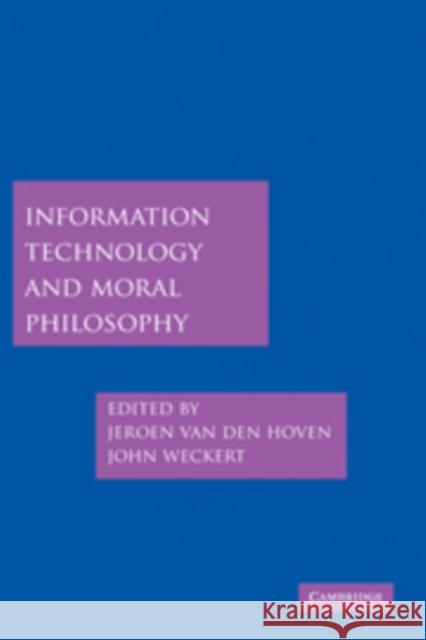Information Technology and Moral Philosophy » książka
topmenu
Information Technology and Moral Philosophy
ISBN-13: 9780521671613 / Angielski / Miękka / 2009 / 428 str.
Information Technology and Moral Philosophy
ISBN-13: 9780521671613 / Angielski / Miękka / 2009 / 428 str.
cena 181,90
(netto: 173,24 VAT: 5%)
Najniższa cena z 30 dni: 146,03
(netto: 173,24 VAT: 5%)
Najniższa cena z 30 dni: 146,03
Termin realizacji zamówienia:
ok. 16-18 dni roboczych.
ok. 16-18 dni roboczych.
Darmowa dostawa!
An international team of philosophers shed light on many of the ethical issues arising from information technology.











